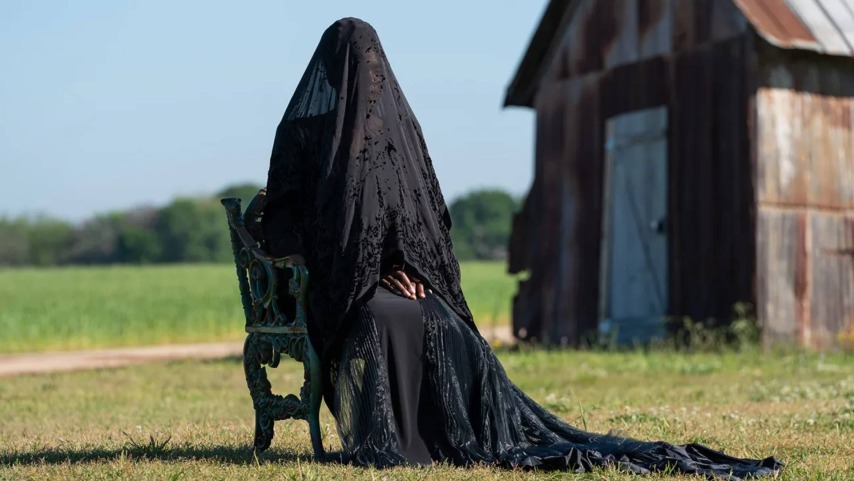Motherhood mirrors monstrosity in The Woman In The Yard
The latest from director Jaume Collet-Serra sets up ample tension and serviceable jumps, but Sam Stefanak’s script rehashes a tired treatise on trauma.
Photo: Universal Pictures
Depression, PTSD, bodily injury, and adult anxieties are all liberally added to the narrative crockpot of The Woman In The Yard, the latest from director Juame Collet-Serra. Hot off of his tense TSA thriller Carry-On (which still holds the title of second-most streamed movie on Netflix), the filmmaker incorporates some of the more successful facets of his skillset: quickly crafting an air of unease, implementing intriguing camera tricks, orchestrating jump scares that feel earned rather than cheap. Conversely, Sam Stefanak’s screenplay is interested in trite allegories for trauma and grief that don’t confront or reinvigorate previous genre treatises on these dark emotions. The Babadook and, to a lesser extent, Us’ fingerprints are all over this story; but comparing The Woman In The Yard to these predecessors hardly feels like a fair fight.
After the death of a beloved husband and father, his widow Regina (a committed Danielle Deadwyler) completely unravels. Left with a severe leg injury after the car accident that killed him, she hobbles around their recently purchased Georgia farmhouse—replete with DIY home reno projects that will likely go uncompleted—in a state of abject misery. Her teenage son Taylor (Peyton Jackson) assumes various domestic duties, which range from making sure the family’s shaggy dog gets fed to minding his elementary-aged sister Annie (Estella Kahiha). The objectively adult tasks, like paying the electricity bill and grocery shopping, are indefinitely put off by Regina, whose melancholy is so potent that it becomes flat-out narcissistic.
Without power, the family can’t charge their phones; one of their cars is still wrecked from the crash, while the other’s gas tank has emptied. This quickly creates peril within the film’s titular circumstance, wherein a mysterious, black-clad woman manifests in the family’s sun-drenched front yard. At first amused by her presence, the family quickly becomes convinced that she’s the harbinger of something deadly. “Today’s the day,” she ominously reveals to Regina during their initial confrontation. A flash of knowing dances across the mother’s face; soon thereafter, horrendous, violent visions begin infiltrating her psyche. Could the biggest threat to the family’s safety be the very person who’s now assumed the role of sole protector?
Indeed, Regina’s motherly instinct has become dull, and as the day drags on it seems almost impossible for her to hone. She emphatically smashes a mug after a moment of typical teenage dissent from Taylor (the cinematography by Pawel Pogorzelski, Ari Aster’s regular collaborator, is particularly fun here) and derides her daughter for an innocent homework error. The implication is that The Woman is casting an air of psychic malaise over the house, but there are also hints that Regina’s actions are wholly her own—or at least authentic to the supposed mirror image that plagues her. The night of her husband’s death, they aptly attend a screening of Barbra Streissand’s The Mirror Has Two Faces, and reflective surfaces are often used in alternate-reality fantasy sequences.
 Keep scrolling for more great stories.
Keep scrolling for more great stories.
